Steven Johnson’s much-discussed book excerpt in the NY Times Magazine challenges the conventional wisdom that television rots the brain, arguing that TV today offers an incredibly rigorous cognitive workout. Multi-threaded narrative, a form first developed on television in soap operas, first found its way into more “serious” programming in the early 80s with Hill Street Blues, and has matured all the way up to the Sopranos, the West Wing and 24. Junk too, Johnson argues, has become more sophisticated. Reality shows like Survivor or the Apprentice explore well-worn territory like sex, money and ambition within a more complex, and at times intentionally confusing matrix, and raise the society of the spectacle to new heights. Much of this, it can be argued, is also influenced by video games, and a large part of Johnson’s book is apparently devoted to this.
On his blog, he brings attention to the question of gaming, and delivers a very funny satire on what would happen if it were actually books that were the new invention that had parents and educators in a frenzy, encroaching on the centuries-old civilization of the video game.
“Reading books chronically under-stimulates the senses. Unlike the longstanding tradition of gameplaying–which engages the child in a vivid, three-dimensional world filled with moving images and musical soundscapes, navigated and controlled with complex muscular movements–books are simply a barren string of words on the page. Only a small portion of the brain devoted to processing written language is activated during reading, while games engage the full range of the sensory and motor cortices.”
It goes on…
Also worth reading is a nice post on Cognitive Daily about the uses of video games in education. And this piece – “Much Fun, For Credit” – from the Sunday Times about the recently instated “Game Arts & Sciences” program at Rensselaer Polytechnic Institute.
Category Archives: Games
reading on your PSP
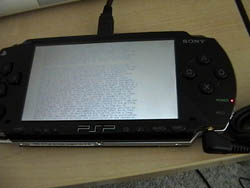 Not surprisingly, folks have already figured out how to read books on the new Sony PSP (PlayStation Portable). The hack is pretty basic – you just turn pages into jpeg images and dump them into the picture folder. The snapshots stack up as a book. Packet Switched Press has even published a short story – a sci-fi piece called “Moving Pictures” – formatted specially for the device (you’re supposed to rotate it 90 degrees to view vertically) (thanks, Boing Boing).
Not surprisingly, folks have already figured out how to read books on the new Sony PSP (PlayStation Portable). The hack is pretty basic – you just turn pages into jpeg images and dump them into the picture folder. The snapshots stack up as a book. Packet Switched Press has even published a short story – a sci-fi piece called “Moving Pictures” – formatted specially for the device (you’re supposed to rotate it 90 degrees to view vertically) (thanks, Boing Boing).
The PSP marks another step toward an ideal portable media device (see the ideal pod), the ebook hack being only one of many tricks to cram in more content options (Wired article for more). The Packet Switch Press story suggests that on the tiny screen, 90 degrees can be all that separates a widescreen movie from an electronic paperback – there’s no “this side up.” The big problem with the PSP is its proprietary file format, laughably named Universal Media Disc (UMD). To watch a movie on your PSP, you have to buy the UMD-formatted edition, even if you already own the DVD. This will ultimately inhibit the development of interesting new works for the tiny screen, clever hacks notwithstanding.
game theory
I wasn’t surprised by two adverse reactions to the blog entry “The Book is Doomed”; scary news for a lot of people. Think about the jargon embedded in those pieces that deal with e-books, or the cryptic messages that pop-up on the screen when the uninitiated tries to access an actual e-book… In order to read a paper book one doesn’t need to know proofreader’s marks or bookbinding jargon. So, a paper book is friendly. At this point, that seems to be the approach almost anyone takes to the idea of a different kind of book. Even audio books have their detractors, those who say that listening to a book isn’t the same as reading a book.
A couple of news in last week’s Times made me think of issues not yet addressed by the Institute’s site. One is the prevalence of videogames in the lives of children and the fact that the “future of the book” really belongs to those children. For me, finding hot and dusty Internet cafes in the oases of the Tlakamakan desert was, in a way, unexpected. Finding those places full of school-age children playing videogames was a revelation. In “Is Instructional Video Game an Oxymoron?” Matt Richtel talks about nonprofit organizations adopting the game format to advance their agenda. “For the current generation, the Net is the medium, and the message includes ‘Become a Unicef World Hero,’ as conveyed by a game on the unicefgames.org site. He also mentions a shooting gallery game from the American Cancer Society that “lets players flip virtual rubber bands at passing cigarettes in the Smokeout Café,” or the Greenpeace site, where “players can intercept harpoons fired from a Japanese whaling ship – or, by getting three ‘activists’ aboard the ship, force its crew to surrender.” The Bureau of Engraving and Printing lets youngsters color and design currency while learning to spot counterfeits.
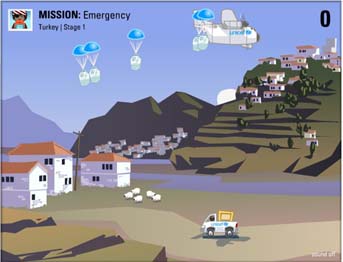
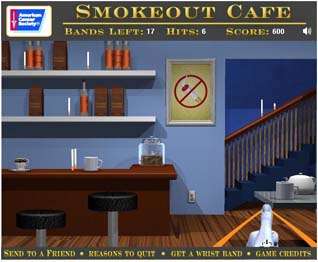
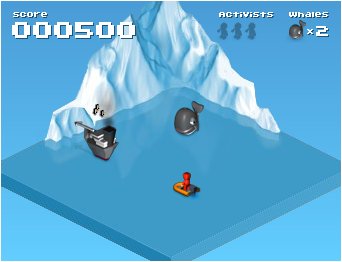
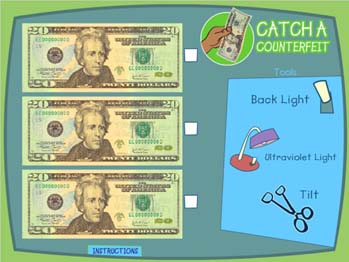
“Through online games, we’re teaching a whole generation to authenticate their currency,” said Dawn Haley, a spokeswoman. “It was one easy way to get children involved. Gaming is huge these days.”
 What they are doing is updating the old didactic tradition of using games to teach, they are teaching in the digital age. That brings me to my second thought, is the future of the book the domain of brainy sophisticates or is it a democratic move? In “New Economy; At Davos, the Johnny Appleseed of the Digital Era Shares his Ambition to Propagate a $100 Laptop in Developing Countries,” they mention that Nicholas Negroponte in partnership with Joseph Jacobson, a physicist at M.I.T., wants to persuade the education ministries of countries like China to use laptops to replace textbooks (see also Laptops for the Masses on this blog). At Davos, Negroponte said that he found initial backing for his laptop plan from Advanced Micro Devices and that he was in discussions with Google, Motorola, the News Corporation and Samsung for support. “You can just give laptops to kids,” he said referring to an experiment in Cambodia. “In Cambodia, the first English word out of their mouths is ‘Google.'” In my opinion that is/should be the future of the book.
What they are doing is updating the old didactic tradition of using games to teach, they are teaching in the digital age. That brings me to my second thought, is the future of the book the domain of brainy sophisticates or is it a democratic move? In “New Economy; At Davos, the Johnny Appleseed of the Digital Era Shares his Ambition to Propagate a $100 Laptop in Developing Countries,” they mention that Nicholas Negroponte in partnership with Joseph Jacobson, a physicist at M.I.T., wants to persuade the education ministries of countries like China to use laptops to replace textbooks (see also Laptops for the Masses on this blog). At Davos, Negroponte said that he found initial backing for his laptop plan from Advanced Micro Devices and that he was in discussions with Google, Motorola, the News Corporation and Samsung for support. “You can just give laptops to kids,” he said referring to an experiment in Cambodia. “In Cambodia, the first English word out of their mouths is ‘Google.'” In my opinion that is/should be the future of the book.
(photograph: girls at the Elaine and Nicholas Negroponte School in Cambodia)
Live from “Scholarship in the Digital Age” Conference at USC: The New Story
Scholarship in the Digital Age
This morning’s presentations got me thinking more about the narrative of the future–the multilayered, accreted story style that John Seely Brown referred to. How is that story going to be told and received? Will the novel become the dinosaur of alphabetic literacy?
Is the new book going to be a game, conversation, multi-layered, multi-authored, highly mutable and never-ending story? Assuming that the story is a conceptual device the culture uses to deconstruct reality, to make meaning, and to create, in some cases, a kind of anthem to rally around, what happens when our traditional narrative structures are replaced? If the single author, plot-driven novel is not the form of the future, then what do you get when you ask a million gamer/authors to shape an epic on the fly? What happens to our perception of reality if our stories are unstable, mutable, and open source?
